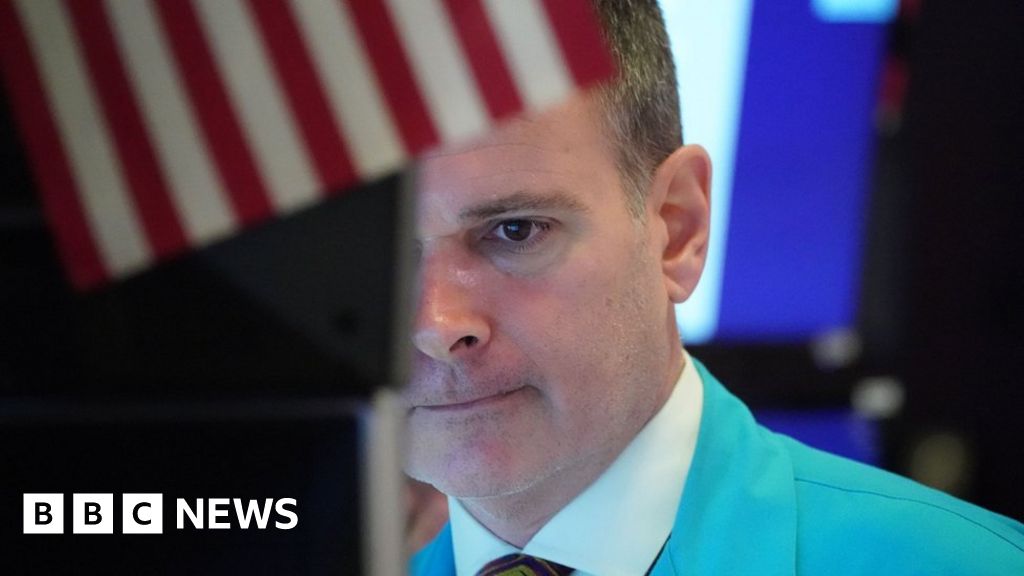Coronavirus: New York Stock Exchange Closes Trading Floor

 Image copyright
AFP
Image copyright
AFP
The trading floor of the New York Stock Exchange (NYSE) is set to shut in the latest coronavirus-related closure.
The Intercontinental Exchange, which operates the NYSE, said all buying and selling of shares will happen electronically from 23 March. Much of the trading is already electronic.
It comes after some staff had tested positive for the virus.
US Treasury Secretary Steve Mnuchin has suggested Wall Street could limit trading hours due to the pandemic.
Mr Mnuchin's proposal followed weeks of market turmoil, with wild swings in share prices dragging indexes down roughly 30% from their recent highs.
However, New York Stock Exchange President Stacey Cunningham said markets do not need to close.
"While we are taking the precautionary step of closing the trading floors, we continue to firmly believe the markets should remain open and accessible to investors," she said.
"All NYSE markets will continue to operate under normal trading hours despite the closure of the trading floors."
Ms Cunningham had previously defended the decision to keep the floor open, telling broadcaster CNBC that having people execute and manage trades helped to reduce volatility.
However, in recent days New York has ordered gathering places such as gyms, bowling alleys, theatres, bars and restaurants to shut. It has also closed schools and banned gatherings of more than 50 people.
On Wednesday, Governor Andrew Cuomo mandated no more than 50% of staff report to work at non-essential businesses.
When the New York Stock Exchange has shut its doors on previous occasions, such as after the September 11 2001 attacks, that has closed markets.
But today, only about 18% of buying and selling happens via the the trading floor, which is a mix of brokers with clients and representatives from major companies.
CME Group, which operates other exchanges, announced last week that it was shutting its in-person trading floor. At the time, it said no cases had been reported. Cboe Global Markets made a similar move.
'Never a matter of if but when'
By Samira Hussain
It is not surprising the floor of the New York Stock Exchange is closing. It was never a matter of "if" but "when."
Most of the work done by traders can be done electronically.
But keeping the floor open had symbolic value, suggesting that despite what turmoil may be unfolding elsewhere, America's economy was still open for business.
However, the NYSE also had to contend with the reality on the ground. New York City is contemplating a "shelter in place" for all residents and there are hundreds of people moving on and off the floor every day.
If the idea is to try and contain the virus, keeping the floor open was quickly becoming unrealistic.
From Chip War To Cloud War: The Next Frontier In Global Tech Competition
The global chip war, characterized by intense competition among nations and corporations for supremacy in semiconductor ... Read more
The High Stakes Of Tech Regulation: Security Risks And Market Dynamics
The influence of tech giants in the global economy continues to grow, raising crucial questions about how to balance sec... Read more
The Tyranny Of Instagram Interiors: Why It's Time To Break Free From Algorithm-Driven Aesthetics
Instagram has become a dominant force in shaping interior design trends, offering a seemingly endless stream of inspirat... Read more
The Data Crunch In AI: Strategies For Sustainability
Exploring solutions to the imminent exhaustion of internet data for AI training.As the artificial intelligence (AI) indu... Read more
Google Abandons Four-Year Effort To Remove Cookies From Chrome Browser
After four years of dedicated effort, Google has decided to abandon its plan to remove third-party cookies from its Chro... Read more
LinkedIn Embraces AI And Gamification To Drive User Engagement And Revenue
In an effort to tackle slowing revenue growth and enhance user engagement, LinkedIn is turning to artificial intelligenc... Read more

